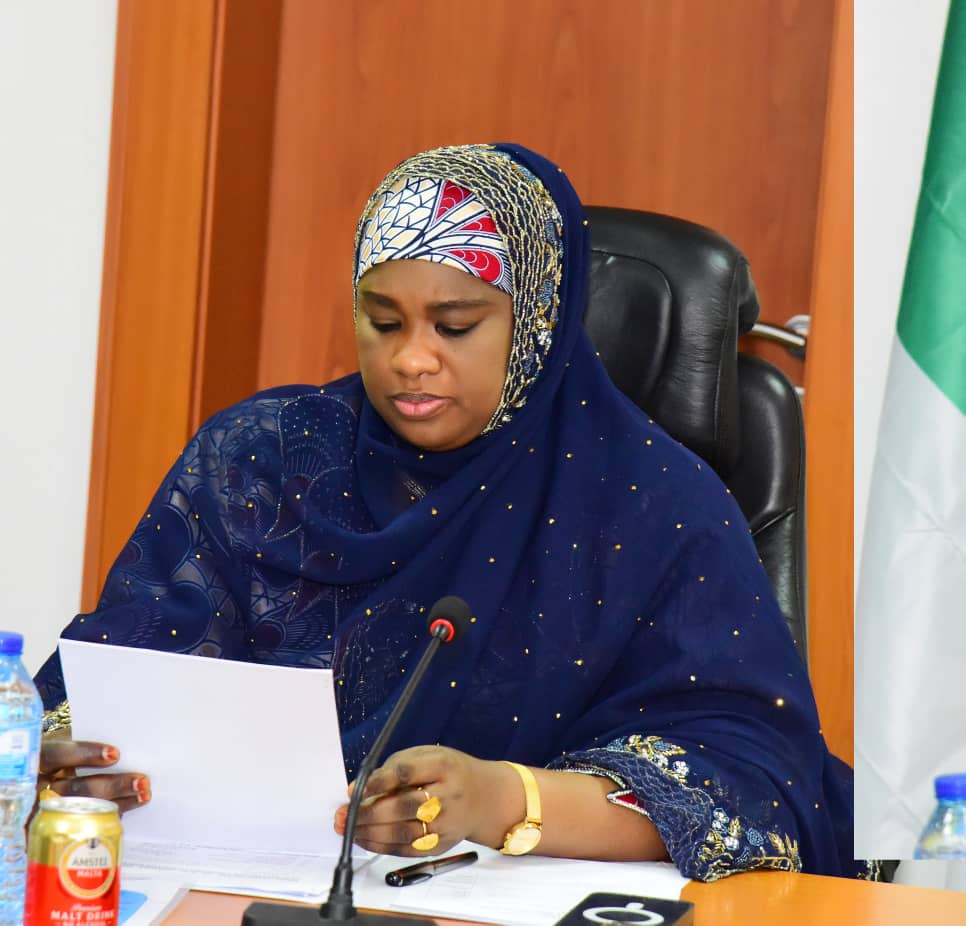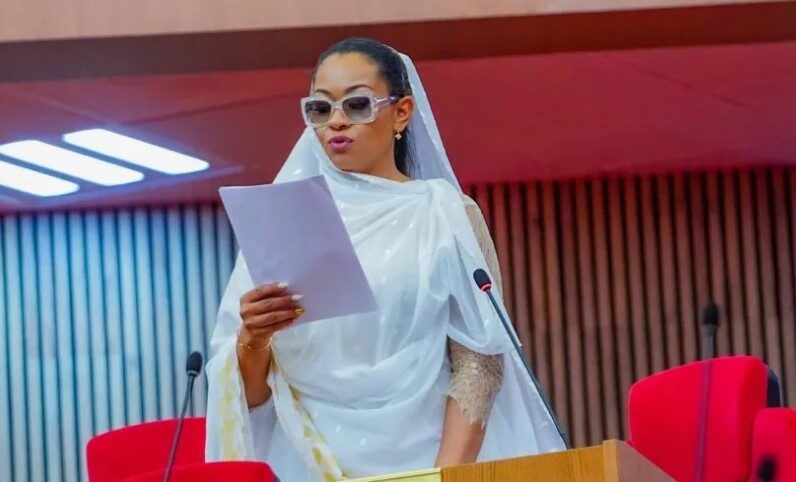In their bid to heal the divides and advance sustainable peace and development, the Forum of Farmers and Herders in Adamawa and Taraba states, under the auspices of Search for Common Ground, has unveiled a policy brief.
The event, which took place in Abuja recently, saw the unveiling of the policy brief by the Adamawa Forum for Farmer and Herder Relations (AFFAHR) and the Taraba Forum for Farmer and Herder Relations (TAFFAHR).
The project, Contributing to the Mitigation of Conflicts Over Natural Resources Between Farmer and Herder Communities in Adamawa and Taraba States (COMITASII), is meant to bring about a lasting solution to the farmer/herder conflicts.

Gift Omoniwa, representing the Country Director of Search for Common Ground, unveiled the findings of the research report conducted by AFFAHR and TAFFAHR.
She indicated that the forums, comprising stakeholders from the academia, governmental, and policymaking sectors in Adamawa and Taraba States, were focused on resolving the escalating conflicts between farmers and herders in Nigeria.
The research report, according to Omoniwa, highlighted several critical issues contributing to the ongoing conflicts, including limited farmland, irregular rainfall, and a lack of irrigation infrastructure.
On the herders’ side, shrinking migratory routes, caused by climate change, population growth, and rising land demands, were identified as key factors fueling the tensions.
The Adamawa Forum of Farmer-Herder Relations (AFFAHR) called for stronger collaboration between stakeholders to address the escalating conflicts between farmers and herders in the region.
In its policy brief, the forum highlighted key challenges, including climate change impacts, resource scarcity, and social justice issues, urging immediate action from both local communities and government institutions.
One of the central issues raised was the growing mistrust between rural communities and security agencies, which has been exacerbated by rising incidents of sexual violence, particularly rape, and limited access to support services.
The forum stressed the need for awareness campaigns and participatory theatre to rebuild trust in security outfits and judicial systems.
AFFAHR also addressed the disruption caused by sudden policy changes, such as bans on grazing and firewood sales, which have fueled tensions and deepened divisions.
The forum recommended that policy development processes be more inclusive, involving grassroots stakeholders to ensure that local contexts are taken into account.
The brief also called for enhanced resource management practices, including training local artisans to maintain boreholes, monitoring water quality, and protecting vital grazing routes. To mitigate the effects of climate change, AFFAHR advocates for the adoption of resilient crop varieties and pest control measures, alongside reforestation efforts.
READ ALSO:Minister Maiha proffers solutions to farmers-herders clashes
Furthermore, the forum urged the government to develop parallel resource management policies that can be implemented by traditional institutions, which often provide more stability during political transitions.
In conclusion, AFFAHR stressed the importance of fostering sustainable, peaceful relationships between farmers and herders through collaborative strategies, policy innovation, and grassroots engagement. The forum called on all stakeholders to prioritize the recommendations to ensure equitable resource use and long-term harmony in Adamawa.
TAFFAHR, on its part, urged the Taraba State Government to create the Taraba State Peace Commission (TSPC) to prevent conflicts, mediate disputes, and promote sustainable peace.
Modelled after successful initiatives in Plateau and Kaduna States, the TSPC would serve as a neutral platform for dialogue and reconciliation among the state’s diverse communities.
The commission, targeted to reduce violence, strengthen intergroup relations, boost investor confidence, and promote long-term socioeconomic stability, is seen as a crucial step in fostering a peaceful environment, enabling development and unity across Taraba State.
Key action steps included developing legislation, setting up mediation and research units, training staff, implementing an early warning system, and launching public awareness campaigns.
The TSPC is seen as a crucial step in fostering a peaceful environment, enabling development and unity across Taraba State.
In a chat with the Guardian, Omoniwa explained that the research findings reflected the perspectives of those directly affected by the conflicts, offering insights from the communities involved.
“The research underscored the urgent need for collaborative solutions, drawing attention to the importance of political will and the commitment of stakeholders, especially at local and state levels, to resolve the underlying issues.”
In addressing insecurity and violence linked to the conflict, Omoniwa emphasized that Search for Common Ground adopted a conflict-sensitive approach.
She noted that not all violence attributed to herders is carried out by them and stressed the importance of distinguishing between legitimate grievances and those driven by criminal elements.
To combat these challenges, Search for Common Ground has implemented community response networks and security platforms at various levels, aiming to foster cooperation among farmers, herders, and other key stakeholders.
The organisation has also worked to train traditional rulers and community leaders in conflict resolution and collaborative problem-solving approaches.
Omoniwa called for increased transparency, collaboration, and accountability among all parties to address the root causes of conflict and ensure sustainable peace.
She further urged all stakeholders to work together to foster a peaceful and cooperative environment for both farmers and herders, recognising the importance of fair and impartial leadership in resolving these challenges.
The district head of Goyana District under the Bachama Traditional Council, Agoso Obameyi commended the Commital Project for its significant impact in reducing farmer-herder conflicts in Taraba state.
Obameyi attributed the project’s success to its ability to foster dialogue and cooperation between farmers and herders, who had previously operated in isolation. This isolation often led to violent clashes over shared resources such as land and water.
“For years, farmers and herders worked in separate spheres, hardly communicating, and conflicts were frequent,” Obameyi explained. “However, the Commital Project has bridged this divide, enabling us to discuss our common challenges and find mutually beneficial solutions. The core issue of resource sharing has been addressed, and now, both farmers and herders are engaging in open dialogue, fostering greater understanding and cooperation.”
Professor Ibrahim Emmanuel Vahela, the chairman of the Adamawa Forum for Farmer and Herder Relations, underscored the importance of collaborative efforts in fostering peace between farmers and herders in Adamawa State.
He highlighted the significant progress made through structured conflict management and community engagement initiatives, notably under the Search for Common Ground (SFCG) program.
Vahyala explained that the SFCG initiative, a key player in conflict resolution in the region, employed a two-step approach to engage farmers and herders separately before bringing them together for joint discussions. This method allowed for a deeper understanding of each group’s concerns, laying the groundwork for productive dialogue aimed at resolving conflicts.
A crucial element of the initiative, according to Vahyala, was the implementation of an Early Warning and Response System. The system, designed to detect and address potential conflicts before they escalate, has proven to be effective in reducing violent clashes in the state.
“We are not just talking; we are facilitating action at the grassroots level, where solutions are often found,” Vahela stated. “The communities are now more sensitive to the importance of peaceful coexistence and collaborative resource management.”
In addition to addressing immediate concerns, the initiative has also emphasized community engagement, ensuring that traditional conflict management practices and local perspectives were incorporated into the resolution process. Vahyala stressed that such community-driven strategies are essential for ensuring long-term peace, particularly as climate change continues to impact farming and pastoral activities.
As the project nears its conclusion, Vahyala and the Adamawa Forum are focused on sustaining the gains made. Efforts are being made to formalize the activities and establish policies that will continue to address conflicts and promote cooperation long after the project ends.
“The future lies in community service and self-sustenance. Our goal is to ensure that the structures we’ve put in place, such as the early warning system and community groups, continue to function effectively,” he added.
Looking ahead, Vahela emphasized the importance of maintaining communication between government bodies and local communities. Ensuring that policies are effectively communicated and understood at the grassroots level is crucial for the continued success of conflict resolution efforts.
As the Search for Common Ground project concludes, its legacy will be measured by the sustained cooperation between farmers, herders, and local authorities, paving the way for a more peaceful and prosperous Adamawa State.




